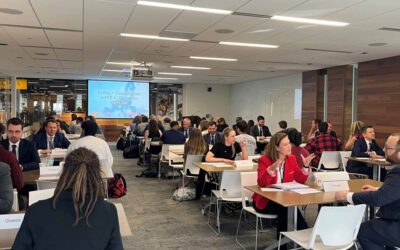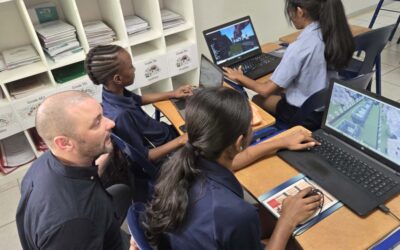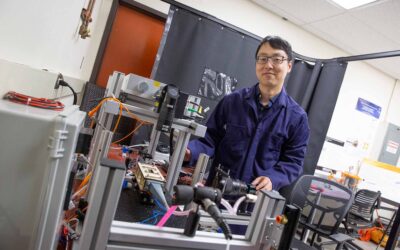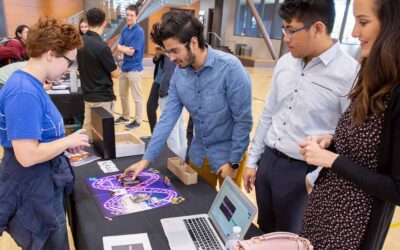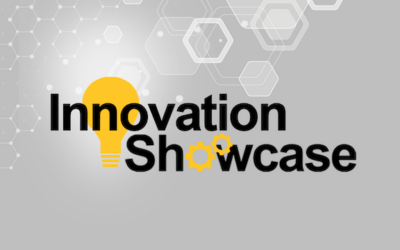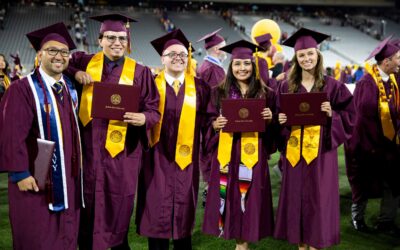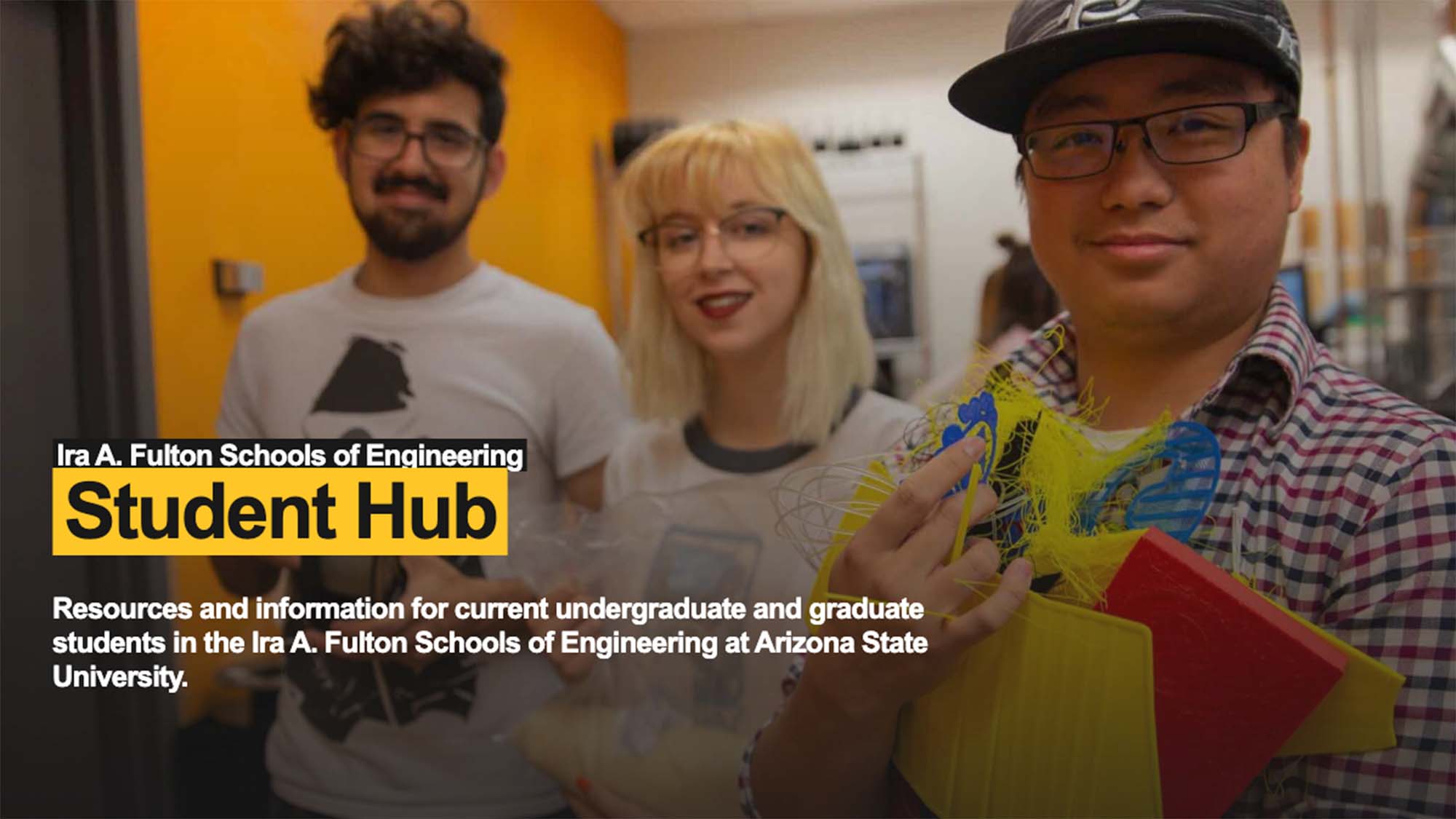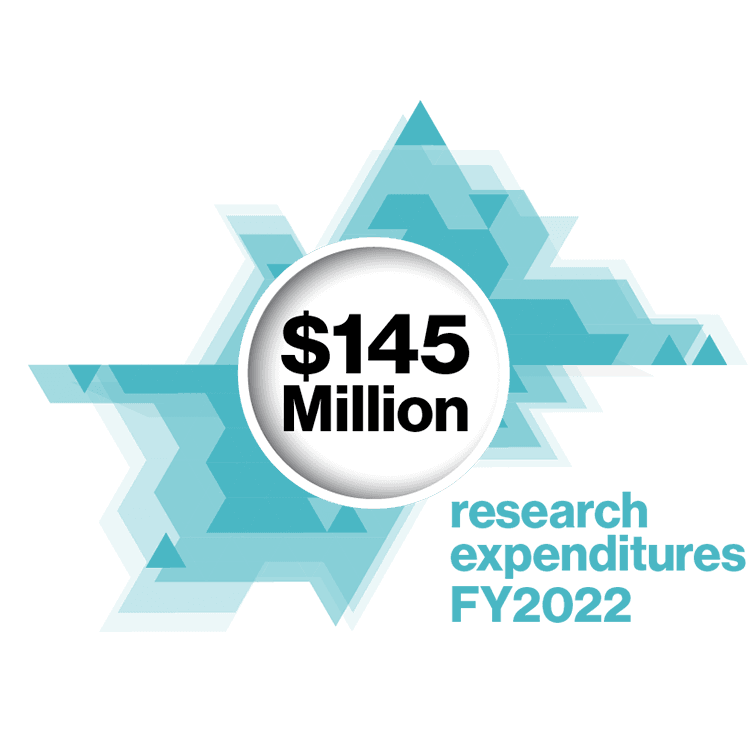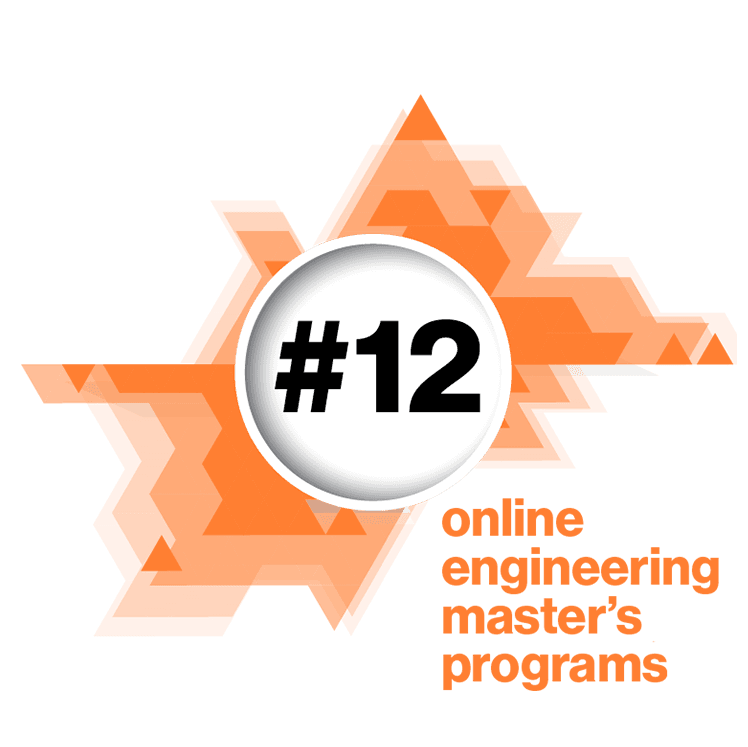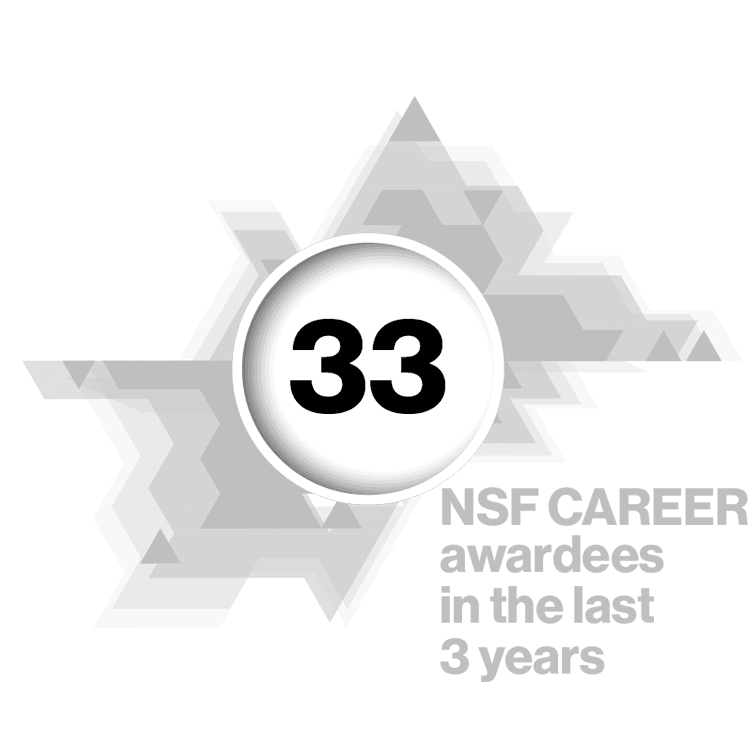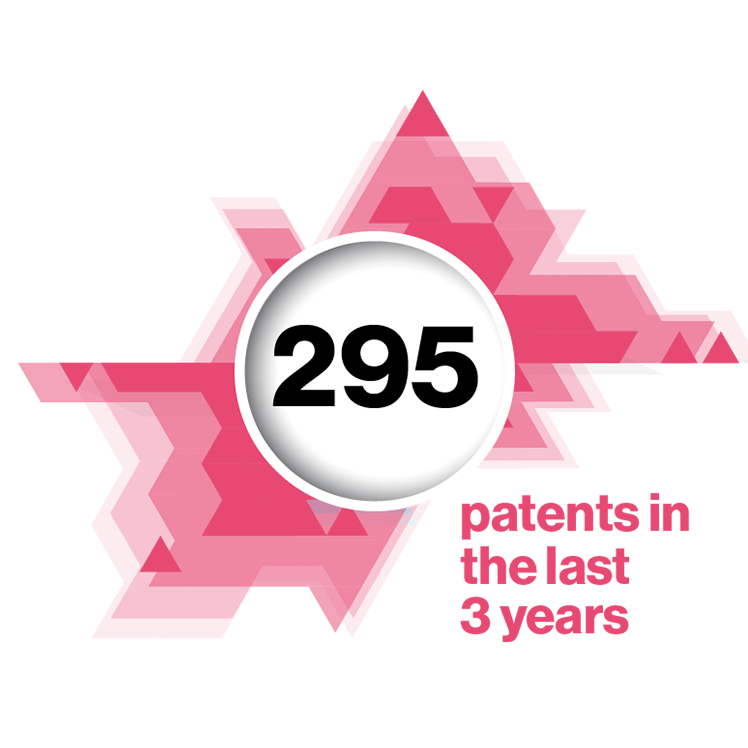More ASU Engineering news
Want to become a Sun Devil?
The Ira A. Fulton Schools of Engineering is the largest and most comprehensive engineering school in the nation, offering 25 undergraduate degree programs, and 48 graduate degree programs.
We have the Fulton Difference: dedication to continuous innovation, student success, faculty excellence, and cultivation of an environment for all to be successful.
Become a Sun Devil and experience the Fulton Difference!
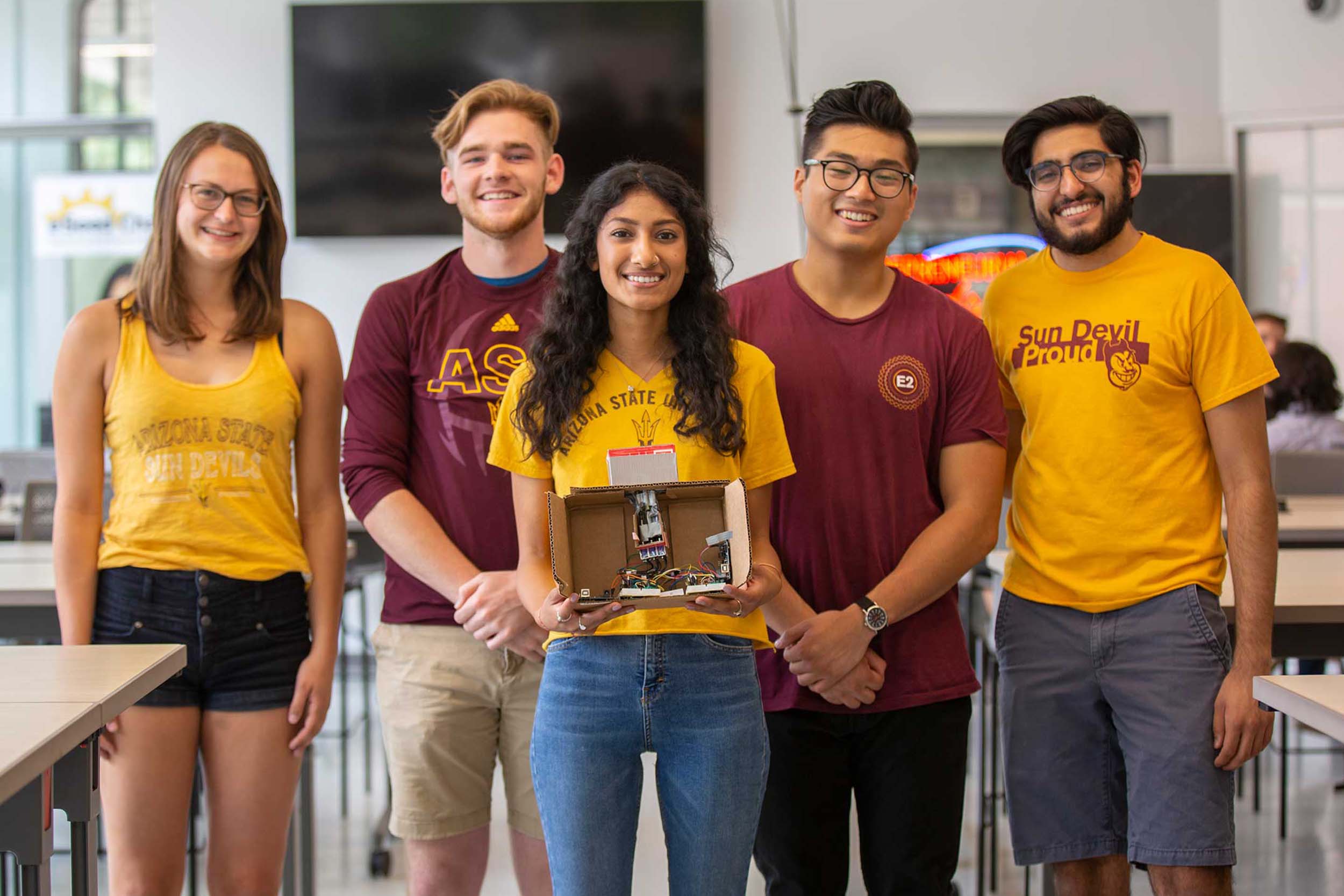
Want to become a Sun Devil?
The Ira A. Fulton Schools of Engineering is the largest and most comprehensive engineering school in the nation, offering 25 undergraduate degree programs, and 48 graduate degree programs.
We have the Fulton Difference: dedication to continuous innovation, student success, faculty excellence, and cultivation of an environment for all to be successful.
Become a Sun Devil and experience the Fulton Difference!
Events and opportunities
Attend a capstone showcase
The School of Computing and Augmented Intelligence (SCAI) and the School of Electrical, Computer and Energy Engineering (ECEE) will have events to showcase seniors’ capstone projects. Come to one or both!
SCAI Capstone Showcase, April 25
ECEE Senior Design Capstone Demo Day, April 26
Join us for Innovation Showcase on April 26
Undergraduate and graduate students in aviation, mechanical engineering systems, software engineering and more will demonstrate the impacts of their projects at this highly anticipated exhibit on the Polytechnic campus.
Attendance is free. Register today!
Celebrate our grads at the Fulton Schools Convocation ceremonies May 4
Join us on Saturday, May 4 for the Fulton Schools Undergraduate and Graduate Convocation ceremonies! Whether you are graduating, or planning to celebrate with your friends or family, you’ll find all the information you need right here: convocation.engineering.asu.edu.
May the 4th be with you!
More events, opportunities and announcements
There are many more events happening in the Fulton Schools! Check our our two events and opportunities websites: Inner Circle for students and In the Loop for faculty and staff.
Inner Circle for students
In the Loop for faculty and staff
Fulton Schools values
The Fulton Schools values are the result of more than six months of exploratory research, focus groups, surveys and reflection. Through that process, we have distilled those insights into five core values that define what we do and strive to achieve.
At the Fulton Schools, we:
- Cultivate excellence.
- Deliver innovation that matters.
- Encourage bold thinking.
- Foster a community of learning and collaboration.
- Build a successful foundation for all to be successful.
